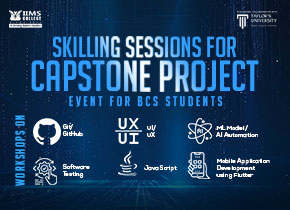The Mobile Computing specialization offers comprehensive training in the principles and practices of mobile technology. Study topics like mobile app architecture, sensor integration, and mobile data analytics. With this specialization, you’ll be well-equipped to design and implement intelligent mobile systems that transform the way people interact with technology.


Introduction to Mobile Computing
Introduction to Mobile Computing explores the dynamic field of mobile technology. As a specialization within the Bachelor of Computer Science program, this course covers mobile app development, wireless communication, and mobile operating systems. Students will gain hands-on experience and skills to thrive in the rapidly evolving mobile computing landscape.


Mobile Applications Development
Mobile Applications Development delves into creating innovative apps for smartphones and tablets. As part of the Bachelor of Computer Science program, this course focuses on app design, programming, and deployment. Students will learn to develop robust, user-friendly applications, preparing them for a career in the thriving mobile tech industry.


Wireless Networks and Security
Wireless Networks and Security is a key course in the Bachelor of Computer Science program, focusing on the design, implementation, and management of wireless networks. Students will explore network protocols, security measures, and emerging technologies to ensure robust, secure wireless communication in various environments.


Internet of Things
Internet of Things (IoT) is a crucial course in the Bachelor of Computer Science program, covering the integration of smart devices and sensors into everyday objects. Students will learn about IoT architectures, data analytics, and applications, preparing them to design and manage interconnected systems in the evolving digital landscape.


Machine Learning and Parallel Computing
Machine Learning and Parallel Computing explores the intersection of AI and high-performance computing. This subject covers machine learning fundamentals, model training, and optimization while integrating parallel computing techniques to handle large-scale data efficiently. Students learn how to leverage distributed computing frameworks, GPUs, and cloud-based solutions to accelerate ML workloads, enhancing speed and scalability.


Professional Practices & Information Security
Professional Practices & Information Security covers ethical, legal, and professional responsibilities in the IT industry while emphasizing cybersecurity principles. Students learn about data protection, risk management, ethical hacking, and compliance with security standards. The course also explores best practices in workplace professionalism, digital forensics, and strategies to safeguard systems against cyber threats.


Advanced Programming
Advanced Programming focuses on developing high-level coding skills, emphasizing efficient algorithms, design patterns, and software optimization techniques. The course covers modern programming paradigms, best practices, and real-world problem-solving to build robust and scalable applications.


Understanding Entrepreneurialism
Understanding Entrepreneurialism explores the mindset, skills, and processes essential for entrepreneurship. The course covers idea generation, business planning, risk management, and innovation, helping students develop a strategic approach to starting and managing a business. It also examines real-world entrepreneurial challenges and opportunities in various industries.





